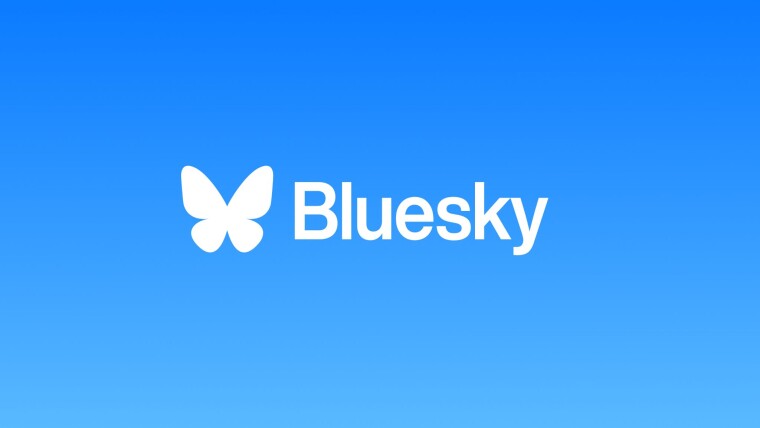How does bluesky make money?
Right now, venture capital investments - same as all tech starts out.
How it’ll monetize to become self-sufficient remains to be seen.
I do not see anything to be angry or disappointed about?
Verification badge was good, the dumb thing Twitter did was throw it away by letting anyone pay for it.
Nah it was not good. Domain names already do that and are accessible to all at all times with full transparency and decentralization. Bluesky is literally regressing.
Even mastodon’s verification system is better than checkmarks.
Far from perfect, but I think it’s good to have a layer that very visibly shows ‘yes, this is the account you want’.
Domains are a worthwhile addition, but they run into almost the same problem as usernames and handles. Can be made misleading easily - sure, I could often go to the web address and verify it (if they don’t put up a convincing fake site), but that’s much lower visibilty.
Eg, you can probably register [email protected] or similar and get it by some folks just as easily as registering the Twitter handle. There’s a payment step to get the domain, but that’s about it.
The centralization problem you mention is a good point though. It was a fine system, if you felt like you could trust Twitter as a verifier. Today obviously, one could not. But Bsky seems to at least theoretically have a ‘choose your verification provider’ idea in mind, which would (again theoretically) resolve a lot of that issue.
domain names do that for people with well known domain names, and verification processes do that for people without
Yup. Need something like EV certs to really verify… And that would only make sense if it’s a “no (non-real) screennames” kind of thing.
i think the .id.au domain licensing rules are a pretty reasonable middle-ground:
https://www.auda.org.au/au-domain-names/the-different-au-domain-names/id-au-domain-names/
The id.au domain name you choose must match or be an acronym or abbreviation of your first name or family name, or your nickname
you have to provide ID to register any .au, so you’re verified as a person, and though they don’t pre-check your nickname, AFAIK if there’s a complaint you do have to prove that you’re “known by” that name
“Everyone should be able to setup their own domain and mess with DNS records to get a verified account”
Do you realize how utterly disconnected from reality this sounds?? Technical people that have absolutely not clue on how make good UX for end users is how we got Mastodon in the first place, and why its adoption is abysmal.
You can pay someone to do that for you tho it’s not any different form paying someone to verify you ina centralized way. Its really not that hard.
Even with more complex setups like mastodon servers you already see markets for this. You can get a basic managed instance for yourself for like 15$/mo - that’s basically nothing for anyone who needs to verify themselves as a brand.
This is not a “pay for verification” model. Have you even read the article or anything related to it? It is literally not centralized, it’s web of trust.
This is just a web of trust model, aka a decentralized model of verification. This thread is mostly people that haven’t read the details that want to confirm that “Bluesky has been enshittified”.
If the same authority is doing verification that is also doing moderation and both ultimately in a for profit setting, that has conflict of interest.
We dont know how reliable bluesky moderation will stay. We dont know how they will respond to political pressure. We dont know how they will monetize past the growth phase and then could also argue a “service fee” for verification.
In a perfect world none of these would happen, but then everybody could still be on twitter and be fine there.
If they really, really want to fix 99.8% of the problems with hate speech (and many other issues), each user needs to agree to have their real name, home address, email address, and phone number available to the public, in their profile. While what I’ve just said is completely absurd, for almost everyone, it’s the anonymity that empowers people to say the absolute worst things.
Why don’t most people in the checkout line (queue) at the grocery store act the same way they do in a traffic jam on a roadway? Because they’re much more likely to be held personally accountable for their conduct. I wonder how much traffic would change, if our name, address and telephone numbers were required to be posted on all sides of our vehicles?
it’s the anonymity that empowers people to say the absolute worst things.
humans behave badly when they perceive they have social license to do so. anonymity has little to do with it
- exhibit A: public robberies of German Jews in the 1930s
- exhibit B: rwandan genocide
- exhibit C: any public confrontation video shot during the Covid pandemic
your second paragraph makes you sound like Larry Ellison. all you’re arguing for is the extension of the capacity of corporations to constrain and coerce invidiual behaviour, which is gross
I think anonymity has a lot to do with it, but you certainly point out that there’s more than anonymity to factor in. I also agree that, especially in our problemed data sharing environment, having our data on public display would be troublesome (understatement of the year). My comments weren’t so much of a “we should do this,” as much as a point of the cost of fixing the problem. Fixing the problem would be worse than the problem itself, but not by much, since all of our data is collected anyway. I personally believe that social media should mostly be outlawed - but I’m old enough to remember a better world before it existed.
You eeediots!
Ren from Ren and Stimpy?
😎
I can’t believe the guy who originally administered the creation of Twitter would do all the exact same things that originally made him billions of dollars selling the company to Elon Musk.
There’s no way he’s just speed-running what he did last time in hopes of another $44B buyout.
Bluesky, the decentralized social network […]
Were only one instance exist or did I miss something?
You can easily host your own instance with a simple docker stack.
I dont know of any public instances except the main but I also havent searched.
you can host your own PDS, but everyone is still using the same appview
I think their initial selling point was that Eventually©®™ Bluesky would federate with the rest of the Fediverse.
Is anybody really surprised that a social media corporation didn’t make it their utmost priority to allow their userbase to connect out of their proprietary platform?
They never said they’d do so natively with other protocols - but they support Bridgy, so you already can do that.
Interesting how other instances of the fediverse have no such restrictions. It’s almost as if they want to make it as difficult as possible so that people just don’t federate.
There’s literally no restrictions other than simple rate limiting, which you can ask for exceptions for.
I don’t know a Mastodon/lemmy server which wouldn’t rate limit new peers
Nope, it’s 100% centralized.
It’s 100% centralized, but with the ability to be decentralized. Sorta like Threads before they started federating
Sure, but until it actually gets used significantly in that way, we might as well just say it’s centralized.
The “ability” to decentralize has costs that scale quadratically. So in every practical sense, it cannot be decentralized. At best it could have a few servers that participate.
No, it doesn’t scale “quadratically”. That’s what going viral on Mastodon does to a small instance, not on bluesky. Pretty much everything scales linearly. The difference is certain components handle a larger fraction of the work (appview and relay).
Both a bluesky appview and a Mastodon instance scales by the size of the userbase which it interacts with. Mastodon likes to imagine that the userbase will always be consistent, but it isn’t. Anything viewed by a large part of the whole Mastodon network forces the host to serve the entirety of the network and all its interactions. So does a bluesky appview, in just the same way, but they acknowledge this upfront.
Meanwhile, you CAN host a bluesky PDS account host and have your traffic scale only by the rate of your users’ activity + number of relays you push these updates to. Going viral doesn’t kill your bandwidth.
I can’t speak to how traffic costs and mastodon works, but this article explains how having multiple blue skies federating with each other scales quadratically. https://dustycloud.org/blog/how-decentralized-is-bluesky/ it is very thorough.
In fact, it is worse than the storage requirements, because the message delivery requirements become quadratic at the scale of full decentralization: to send a message to one user is to send a message to all. Rather than writing one letter, a copy of that letter must be made and delivered to every person on earth
That’s written assuming the edge case of EVERYBODY running a full relay and appview, and that’s not per-node scaling cost but global scaling cost.
Because they don’t scale like that, global cost is geometric instead (for every full relay and appview, there’s one full copy with linear scaling to network activity), and each server only handles the cost for serving their own users’ activity (plus firehose/jetstream subscription & filtering for those who need it)
For Mastodon instance costs, try ask the former maintainers of https://botsin.space/
I’m sad that bots in space had to spin down, but there are still bots on Mastodon. One server quitting didn’t take everything down.
The part where if a mastodon post gets popular, it has to serve that to everyone makes sense because it’s kind of like a website. Maybe there could be a CDN like Cloudflare that a mastodon server could use to cache responses?
The part about Bluesky that doesn’t sound good to me is “to send a message to one user is to send it to all”. Wouldn’t this be crazy with even 100 servers for 10000 users, vs 2 servers with 5000 each? Not sure how the math works but it doesn’t look good if they have to duplicate so much traffic.
This is a little bit more black and white compared with the other responses. 🙈
As I understand it, the protocol has the ability to decentralize built in. But the technical requirements are prohibitively high to the point only large businesses or corps could afford to do it. I also believe (someone correct me) the company hasn’t switched on the functionality yet.
my mom has always told me that I had the potential to work at NASA. but the requirements are prohibitively high
all you need is a work ethic and a time machine
I believe in you!
Last heard (a few months ago) the cost is in storage. The protocol isn’t too complicated now, but it generates a shit ton of data, and IIRC you need a minimum of 3 copies.
Storage is cheap whwn it comes to webhosting and 3 replicas is honestly not much when it comes to enterprise standards. I think cloud storage providers like backblaze keep something like 9 copies of data across different mediums
The biggest thing is that you need to be manually authorized by them for federation. They will only ever federate with servers that arent serious enough competition to lead to democratization of the overall network.
No, PDS federation is fully open now.
They’re also actively supporting development of 3rd party appviews and relays.
The power dynamic is still 1000000:1 they can do whatever they want and you will have to follow. If they defederate you, there is no value in your self hosted instance.
Partially - something running independent infrastructure like Whitewind (blogging on atproto) will still work just like before (it’s easier for them to run it independently because you don’t need a full network view, just pull in the posts from the user’s PDS for standalone display)
When the work to make appviews easier to run makes it more practical this will be less of a risk.
Maybe you remember PDS federation not being open for a while, but it’s open now.
Running a public appview can be very expensive, but they’re working on making it cheaper to run one with a limited scope.
I dont see this in the article.
I don’t see anything controversial in the article. Did I miss something? Just looks like a way to make sure the public figures and companies you are communicating with are who they say they are.
Verification wise there is already domain. But ultimately, it is too soon for the twitter exodus to get the blue check. All in all, this type of outrage is doomed to repeat with that type of central entity.
I think the existing domain-based verification system is a better way of doing that. Something like Mastodon’s verified links might be a nice addition. This more centralized system is… not what I hoped for.
I didn’t sound like a centralized system from the article. More like they want a third party like Verisign or something.
Something will have to be done as these platforms become more popular to cut down on fraud and disinformation. You don’t want people impersonating other people or organizations, or companies. Even if Bluesky starts federating to other platforms, just knowing that they have a blue sky blue check would be an improvement if you could display that check on other clients like mastodon posts.
ICANN has already made a mess of domain names so I don’t know if relying on the domain is enough. People are using non-Roman characters to trick people into thinking a website domain is the real thing. Others are buying up all these random domains so you get things like medicare.net and medicare.org and medicare.com etc etc.
I dunno what the answer is. Just rambling out loud in frustration.
I didn’t sound like a centralized system from the article. More like they want a third party like Verisign or something.
It’s going to be both. Bluesky will verify users, but they’re also going to have other authorized verification entities.
From what I’ve seen, there will be two distinct types of blue check- users verified by Bluesky will have one mark, and users verified by a trusted authority will have a different mark.
Now who will those third-party verifiers be, and how will they be selected, hasn’t been announced yet.
What are you talking about? This is a web of trust model, literally a decentralized model. Not everyone on social media needs to have technical skills to verify via DNS records, verified links etc. If you want a community that gatekeeps for for computer engineers only, you already have Mastodon.
It appears to depend on Bluesky designating entities to do the verification.
It already has domain verification which is better IMO. Its more reliable and safer as you have to own the domain to use it.
It’s stupid rage bait for morons.
The fuck did anyone expect?
idk man I haven’t seen anyone complaining about it on Bluesky
This is a net positive, nice to have a social media where verification checks are…actually used for verifying the person behind an account
Most of the complaints I’ve seen were about Bluesky’s lack of a formal verification system.
They could never figure out how the current system of checking the username.
But isn’t the domain already doing that?
The problem with domains is that regular people would need to know what a domain is and what verified ownership says about the account in question.
Even then, reading domains is quite difficult, even for people who know about the topic: Humans are Bad at URLs and Fonts Don’t Matter
That link was a super interesting read!
Excellent post as usual from Troy, but use Bitwarden, not 1Password
Personally I use KeePassXC + Syncthing, but Bitwarden/Vaultwarden is also a great.
What’s somewhat amusing, for lack of a better word, is that even that advice doesn’t fully resolve the issue, as Troy himself recently was the victim of a phising attack, where one part of the issue was that even legitimate sites changes their sign-in domains frequently enough that you kind of become numb to when the auto-fill stops working and just “correct” the issue without the necessary due diligence.
I saw some small talk about it, and it really just boiled down to domain verification is great for more tech savvy folks, but trying to get larger accounts (think politicians, celebrities, etc) is a lot harder. Having a visual check, using tools within the app or site, is a lot easier.
And personally I like the idea of verification checks as long as it remains a simple means to do just that: verify the owner of the account. Morons like Musk and his ilk always thought it was a clout thing, and for a small minority that was probably the case, but by and large before he ruined it, it was great.
If they are, and there isn’t anything to display it, how are we to know what’s been vetted and what’s slipped through the cracks? Especially on a new account?
It’s the username so already quite visible.
For example someone at say, NPR, could use a name like @bob.npr.org which is only possible by verifying ownership of the npr.org domain name, so there is no need to vet anything.
That’s great for an organization like NPR which may have the resources to tie its own domain name into Bluesky. For some freelance reporter or otherwise verifiable person, I’m not sure it’s quite so practical.
Domains are dirt cheap.
And tying it to the Bluesky system? Not sure the cost of that (I swear I saw it was a potential monetization they were looking into) but also the time to figure it out isn’t practical for everyone.
I just bought a domain for $2
Domains only help you verify organizations and individuals you recognize directly.
This verification system also allows 3rd parties (it’s NOT just bluesky themselves!) to issue attestations that s given account belongs to who they say they are, which would help people like independent journalists, etc.
Idk. Celebrities and Politicians usually have other vetted channels such as their own website or a website of their ogranization representing them. It should be basic journalistic work to see if their social media links link to the account in question or not.
I’m not seeing the advantage of everyone having to do the same vetting process repeatedly.
I feel like domain usernames are still inherently susceptible to phishing, you can get a typo or similar character to try and trick someone that your username is an official one
Based on how verification was revoked for some users on Twitter based on their content rather than question of their identity, I’m cautious about this system turning into the status symbol it became on Twitter rather than the verification it claimed to be.
This was always bait to keep people using corporate social media instead of decentralizing. I am not sorry for the users one bit.
Any system built on anonymous accounts is going to have the exact same problems. Lemmy is not “less bad” than Reddit because it’s decentralized. Blue checks isn’t the problem with twitter, and neither is Elong
Not sure where you’re going with that, but it’s a perverse incentive, just like the engagement algorithm.
Elon is a problem because he can literally force himself into everyone’s feeds, but also because he always posts polarizing/enraging things these days.
Healthy social media design/UI is all about incentivizing good, healthy communities and posts. Lemmy is not perfect, but simply not designing for engagement/profit because Lemmy is “self hosted” instead of commercial is massive.
Embrace the fediverse
☑️
You’re hereby given a ✅
I’m shocked. Shocked, I tell you.

Pikachushocked, even.
Decentralized, yeah sure!
Tbh I’ve seen more people asking for this than the people complaining.
How come they don’t use the already built in domain verification? It’s basically fool proof to certify that an account is owned by a specific entity.
I think having both is nice
It’s what Twitter had and most people on blueksy just want Twitter before Elon. It sucks but that is really what the majority of people even want. They don’t care about the decentralized stuff.
There’s been a lot of impersonated accounts popping up lately, so it doesn’t surprise me they’ve opted to do something like this.
Oh yeah, they are literally everywhere. And a lot of them are impersonating people that haven’t switched from Twitter yet to take advantage of it specifically.
Bluesky already has domain based verification which solves that perfectly, I guess people just don’t want to use it.




























